Check the Search Results for Any Keyword
Check the SERP for any keyword and get instant insights into the pages ranking for that term. Then, use this information to understand your own website’s ranking potential for your target keywords.
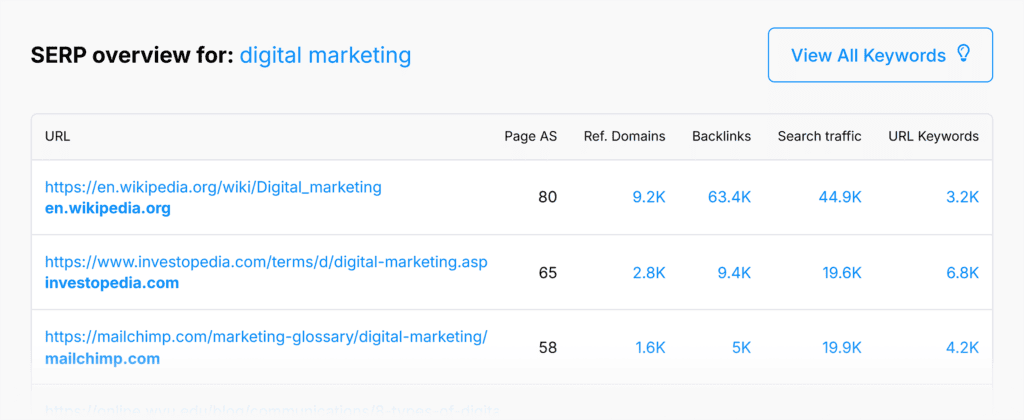
What Does This SERP Checker Show You?
When you enter a keyword into the tool and click “Check SERP,” you’ll see the following metrics:
- URL and domain: This shows each page ranking for the keyword you enter
- Page AS: The Authority Score of each page (a measure of its ranking power)
- Referring domains: The number of unique websites linking to that page
- Backlinks: The number of unique websites linking to the domain
- Search traffic: The amount of monthly traffic driven to that page from this keyword
- URL keywords: The total number of keywords the page ranks for
This data goes beyond just showing you the URLs ranking for that term—it gives you a snapshot into their authority and indicates how likely it is that YOUR website could rank for that keyword.
For example, if a SERP is packed with URLs with high Page Authority Scores and lots of backlinks, it’s going to be tough to rank for that term with a new website. But if you analyze the SERP and the ranking pages all have less authority and fewer backlinks than your site, it could be a viable keyword to target.
Meanwhile, metrics like search traffic can indicate how lucrative a keyword might be to rank for. If one of your competitors is on the SERP and you can see they’re driving a lot of traffic to their site through that keyword, it could be worth targeting with your own content.
Finally, if you see a page ranking for your target term that’s also ranking for thousands of other keywords, that could indicate there are a lot of subtopics you could create content around.
Tip: Click the number in this column to see a full list of the keywords that page ranks for.
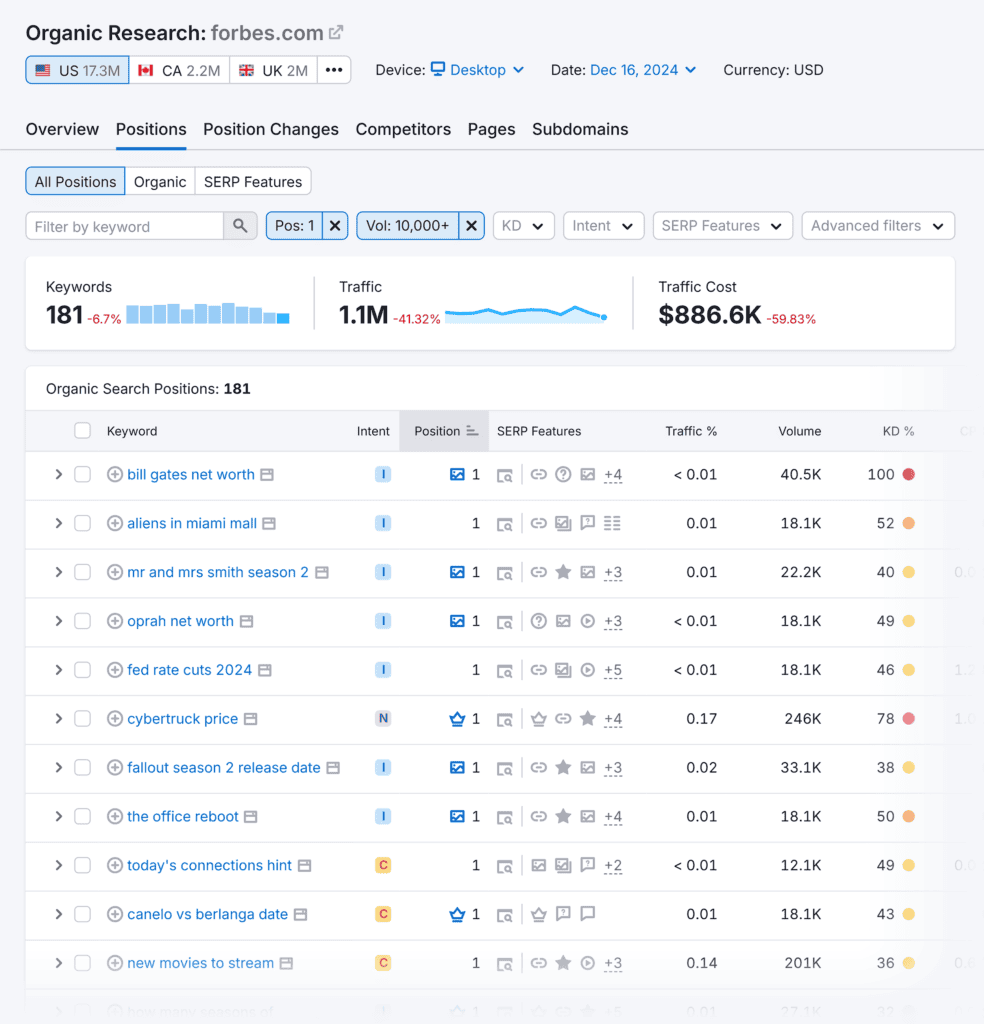
What Can You Do with SERP Checker Data?
Get Keyword Level Metrics
SERP checkers can show you a lot of “behind the scenes” information about the search results for any of your target keywords.
For example, Semrush’s Keyword Overview shows you keyword data like search volume, search intent, and keyword difficulty. And you’ll see a graph showing the trend of search interest over the past 12 months.

But you’ll also see advertising-specific information, like cost per click, competitive density, and even the number of ads and PLAs. This makes it an ideal tool for both SEO and SEM campaigns.
Get Domain and URL Level Ranking Data
Lots of SERP checkers will show you metrics about the domains ranking for your target keywords. This is helpful for understanding what kinds of websites (from an authority perspective) you’ll be competing with.

However:
A website can have a low Authority Score, but a high Page Authority Score. This means it might not be super authoritative overall, but for certain terms or topics, it might be extremely relevant.
Likewise, a site might appear to have relatively low authority at the page level, like this:
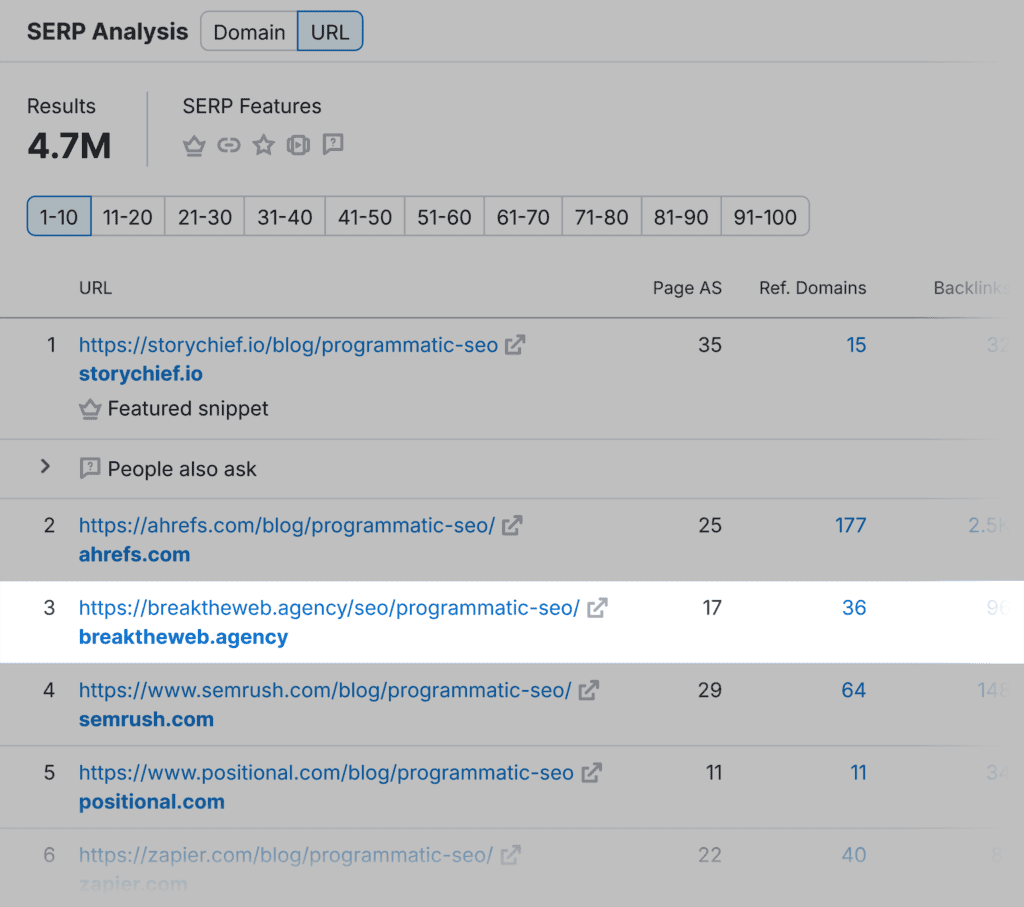
But when you look at its overall domain authority, it might have a much higher overall Authority Score (and therefore much harder to compete with).
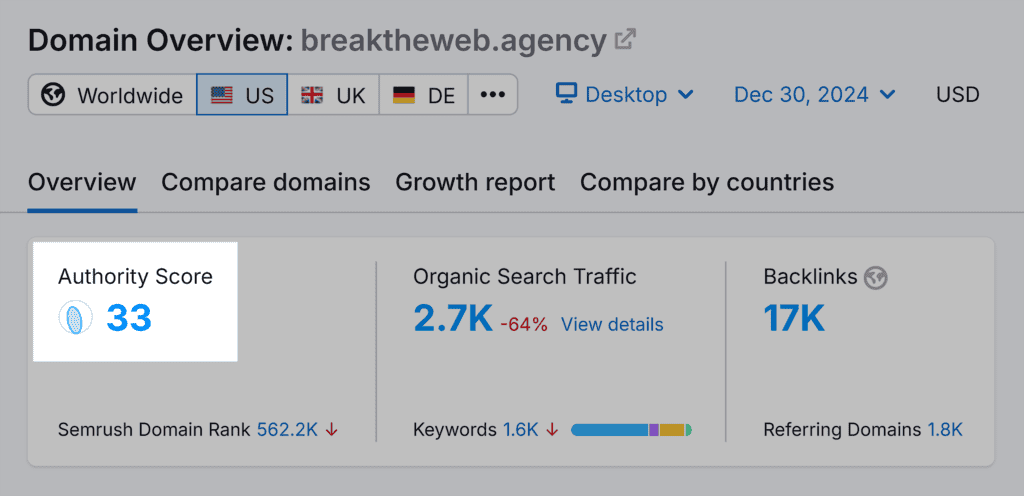
This is why it’s especially useful to have access to both URL and domain level metrics. So that you can make a comprehensive assessment of your true ranking potential.
Semrush’s Keyword Overview also gives you personalized data if you enter your own website’s domain. This way, you can see your ranking potential for that target keyword.
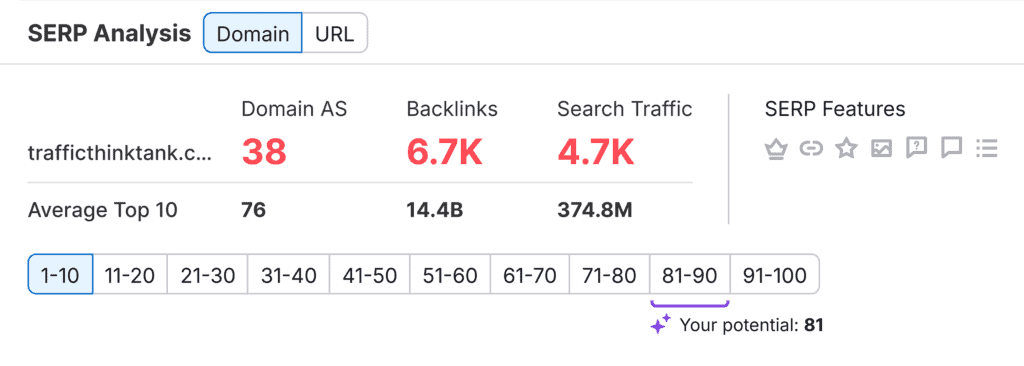
This kind of data is super useful for SEO forecasting.
Analyze SERPs at the Local Level
Local businesses can also benefit from SERP checker data. By filtering at the city level, Semrush’s Keyword Overview tool can help you get a picture of your rivals’ rankings and understand your own ranking potential.

To check the SERP for any keyword and get access to lots of helpful metrics like these, try Semrush’s Keyword Overview with a free trial of a Pro subscription.